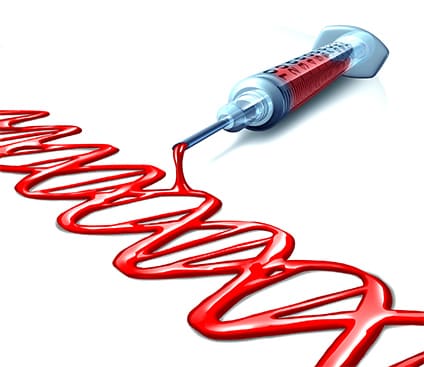- Hotline+971 50 27 28 29 1
- for Individual offices click here
STA's Team of Lawyers in Abu Dhabi, Bahrain, Doha, UAE, Luxembourg, Moscow, RAK, Sharjah, and Singapore. Find a Lawyer. ..
Read more informationNew Pharmaceutical Products Track and Trace System in the UAE
 The UAE Ministry of Health and Prevention (MOHAP) has newly established a decree for a system wherein pharmaceutical products within the UAE and those entering the UAE are traced and tracked for authenticity and legality. The new traceability decree was issued on June 2021 and applied to all standard pharmaceutical products traded in the United Arab Emirates.
The UAE Ministry of Health and Prevention (MOHAP) has newly established a decree for a system wherein pharmaceutical products within the UAE and those entering the UAE are traced and tracked for authenticity and legality. The new traceability decree was issued on June 2021 and applied to all standard pharmaceutical products traded in the United Arab Emirates.
This came into being with the official update of Movilitas joining forces with the United Arab Emirates to launch a system where pharmaceutical products traded within the country can be tracked and effectively traced by authorities for authenticity and legality. This initiative came into force with the joining of Movilitas to the Evoteq solutions provider, which is based in the UAE, to establish a new tracking system hereafter named Tatmeen functioning under the UAE Ministry of Health and Prevention (MOHAP). Movilitas is an internationally recognized provider for Tracking and Tracing networks to enhance services in line with the dynamic economy. Tatmeen is created in adherence to Global Standards 1 (GS1) with Systems Applications and Products in Data Processing (SAP) software. This system is advanced for tracking and tracing pharmaceutical products with strict compliance to internationally recognized health regulations.
The introduction of this system is based on the efforts of the UAE Government to ensure the authenticity of pharmaceutical products traded within and with the country by introducing 2D Data Matrix barcodes on the packaging of all medicinal products and various other specifications and provisions to authenticate the same. This was following the Dubai Health Authority's initiative to introduce the tracking and tracing system of pharmaceutical products within the Emirate with a similar system of requirements of products to acquire GS1 barcode standards, a GLN for recognition, and a 2D data matrix on products with secondary packaging.
The new system will protect purchasers from fake and illegal drugs, help bring down fraud in the health insurance sector and facilitate efficient maintenance of pharmaceutical products within the country with productivity. Innovative technology will enhance efficiency in the industry and inculcate transparency and fair play in the supply chains of several sectors.
Deadline for Conformity
There are specific deadlines to be met by traders of pharmaceutical products with the new decree. Traders of pharmaceutical products are given a 6-month grace period with the issuance of this Law. However, after the grace period, all medicines or pharmaceutical products entering the country must adhere to the GS1 standards, which include having a 2D matrix barcode and a configuration that humans can read. The deadline for the same would be on or before 13th December 2021. The deadline for sterilization process details and assigning new products out upon the new Tatmeen platform is 13th December 2022, with an estimated period of 18 months for the processing. Every site licensed by the Government and Health Authorities of the UAE to engage in trading medicines is mandated to register with a GS1 global location number (GLN) within a maximum of 10 months for the decree of the new Law to be 13th December 2022.
Exemptions
There are certain exemptions from compliance with the provisions of the new decree. All those pharmaceutical products which are so far within the country before 13th December 2021 can carry on with the trade of the same without exclusively falling in line with the new mandates. This will be done until the number of products traded gradually decline. Certain pharmaceutical products are exclusively exempted from the new decree's provisions, including free samples, those medicines brought into the country for personal use and not sale, medical devices and supplies, and finally, general sales list medicines.
The introduction of Tatmeen has enabled authorities in the UAE to create a platform for a new pharmaceutical products traceability system within the UAE.
Effects on Stakeholders
With the changes brought in by the new decree, there will be effects on the supply chain stakeholders of these pharmaceutical products. Actors within the supply chain must ensure their products are registered with the GS1 platform of the UAE and ensure that the necessary product master data is subsequently uploaded on the forum. The stakeholders with these requirements would include holders of the retail authority, the brand owners or entrepreneurs, manufacturers, or their respective subsidiaries. All players of the supply chain within the geographical area of the UAE are mandated to acquire a Global Location Number (GLN) from the GS1 platform of the UAE to authorize essential information regarding their name, establishment, location, etc. Once the new decree formally comes into effect, there will be mandatory uploading of data onto the Tatmeen platform, which could potentially take place by December 2022.
Product Recognition Requirements
Under the new decree, those products with secondary packaging must mandatorily have a barcode with the GSI Data Matrix. This is mandatory for all pharmaceutical products regardless of whether they are registered or not. It is also applicable for all drugs manufactured within the UAE or imported from abroad. The drugs with secondary packaging traded with the UAE are to be serialized. The specifications concerning serialization and assemblage are per the packaging level of the said products. Products with secondary packaging must include the specification regarding the Global Trade Number (GTIN), randomized serial numbers, expiry date, and a Lot Number. These details must be presented on the packaging as well as in the GS1 Data Matrix. The country's logistics components must be assembled and identified with a unique Serial Shipping Container Code (SSCC). The assembling of these products is to be done by the manufacturers who will supervise that SSCCs are appropriately placed to facilitate ease of reporting at all levels. Actors in the supply chain who engage in the unpacking and repacking of pharmaceutical products to further facilitate the delivery of the drugs to their respective logistics units are to ensure that they use their SSCC codes for specifications and identification. As the products within the logistic units are also considered trade items by business persons and retailers, the items must acquire a GTIN identification under the new decree.
 With the onset of a new pharmaceutical products traceability system within the UAE, there is a more extraordinary ability for authorities to trace and track the flow of drugs and the authorization of the same within the country. This tracking is done from a Central Centre in the UAE using the GS1 standard serialized bar codes. With the bar codes in place, authorities will be able to conduct inspections at any time by scanning the bar codes on products at various authorized avenues where they are sold and can thus enhance the identification of illegal drugs and the providers of the same within the country. The traceability system also provides stakeholders in the supply chain to supervise and track the activity concerning the movement of the various drugs and for service providers like hospitals and pharmacies to identify the authenticity and authorization of products they take in and simultaneously sell. There is also a prospect for users at home by way of an app to track and confirm the authenticity of their purchased medicines. The new decree is a well-needed development in the country to enhance their supervision over a sector significantly affecting the lives of all individuals and citizens in the UAE. The Government aims to expand this innovative front to various other industries and sectors within the country.
With the onset of a new pharmaceutical products traceability system within the UAE, there is a more extraordinary ability for authorities to trace and track the flow of drugs and the authorization of the same within the country. This tracking is done from a Central Centre in the UAE using the GS1 standard serialized bar codes. With the bar codes in place, authorities will be able to conduct inspections at any time by scanning the bar codes on products at various authorized avenues where they are sold and can thus enhance the identification of illegal drugs and the providers of the same within the country. The traceability system also provides stakeholders in the supply chain to supervise and track the activity concerning the movement of the various drugs and for service providers like hospitals and pharmacies to identify the authenticity and authorization of products they take in and simultaneously sell. There is also a prospect for users at home by way of an app to track and confirm the authenticity of their purchased medicines. The new decree is a well-needed development in the country to enhance their supervision over a sector significantly affecting the lives of all individuals and citizens in the UAE. The Government aims to expand this innovative front to various other industries and sectors within the country.